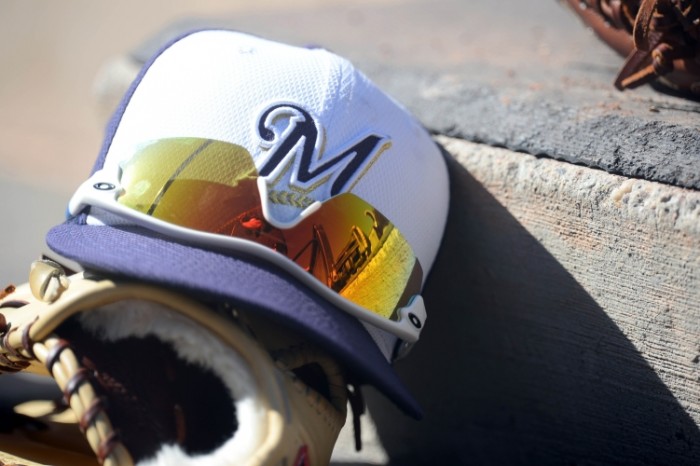Yesterday, our own Julien Assouline discussed the “importance of mediocrity” in a major league starting rotation. Ace-caliber starting pitchers are few and far between, and having a couple of hurlers at the back of the rotation that are capable of keeping your team in games and giving the club a chance to win on a consistent basis can be just as important as having one dominant starter at the top of it.
Julien’s post and belief itself seem to a part of a trend here at BP Milwaukee of focusing on and highlighting some of the depth within the Brewers’ minor league system. Nicholas Zettel discussed several of these types of prospects during his “three-up, three-down” series that ran this week. Most players won’t wind up as All-Star performers, but that doesn’t mean that their contributions are of no value.
One glaring weakness of the Milwaukee Brewers this season has been the starting rotation. Only one starting pitcher, Junior Guerra, has posted an above-average DRA this season, and he started the year off as minor league depth. According to cFIP, only two of the current five starters, Guerra and Zach Davies (another minor league call-up), are projected to be average-or-better going forward. If arms like Chase Anderson or Matt Garza continue to struggle as they have thus far, there should be opportunities for other hurlers to see some starts as the summer continues.
Craig Counsell (a former depth/utility player himself during his career) has often emphasized that he’ll give opportunities to the players who have earned them. One prospect who looks like he’s earned a shot at the major leagues is left-hander Brent Suter, currently pitching for the AAA Sky Sox.
Suter, 26 this season, is a Harvard graduate that was chosen by the Brewers in the 31st round of the 2012 MLB Draft, the 965th player selected that season. His stuff doesn’t jump off the page at you, but that’s typically part of the reason why a player gets drafted in the 31st round. Suter’s fastball sits in that 89-91 MPH range, and he also offers a curveball and a changeup.
As we’ve seen in Milwaukee with arms like Zach Davies, Mike Fiers, and Marco Estrada, though, one doesn’t always need velocity to be successful. And the 6’5″, 195 lb Ivy-leaguer has seen nothing but success during his time in the professional ranks. During his first four seasons in the Brewers’ system, Suter has posted full season ERA’s of 3.61, 3.43, 3.96, and 2.36. Hardly dominant results, but certainly steady. He’s been adept at keeping the ball in the park and typically induces ground balls at a rate of roughly 45 percent. Suter doesn’t have swing-and-miss stuff, though he has struck out about 19 percent of the batters that he’s faced during his career. He does minimize his free passes as well, to the tune of a 6.9 percent rate throughout his time as a pro.
Despite the fact that the Sky Sox rotation features top prospects like Jorge Lopez and Josh Hader, there’s really no argument against the fact that Suter has been the club’s most effective starter in 2016. Brent is second on the team with 76.0 innings pitched and has worked to a 4.03 ERA, which is the lowest mark on the Sox (min 25.0 IP). The Pacific Coast League and Colorado Springs specifically are known for being quite harsh on pitchers, but Suter has thrived during his time with the Sky Sox in 2016, posting an ERA that nearly a half-run better than the league average of 4.51.
Suter’s peripherals back up his solid performance, as well. Though he’s been the victim of a .373 BABIP, Suter has been able to limit the damage by walking only 3.5 percent of batters he’s faced this season, a career-low. His 16.1 percent strikeout rate may be a tad underwhelming even for him, but Brent has also allowed just two home runs all season. According to his impressive 3.33 FIP, Suter’s already strong run prevention should look even better.
Personally, I’d be surprised if Suter doesn’t receive a major league call-up at some point this season on the strength of his work in one of the toughest pitching environments on the planet. If, or when, he does make it to the big leagues, he’d be the first player from his draft round to do so and would become another late-round success story from the Bruce Seid regime. Suter could perhaps be someone who is capable of eating innings in the back end of the starting rotation, or perhaps work in a swingman role out of the bullpen. Suter won’t ever be a front-line starter, but that doesn’t mean he won’t have value to the Brewers on the field or, as we’ve seen with other depth arms like Tyler Wagner and Cy Sneed, as a potential piece of a trade.

1 comment on “Suter and Pitching Depth”